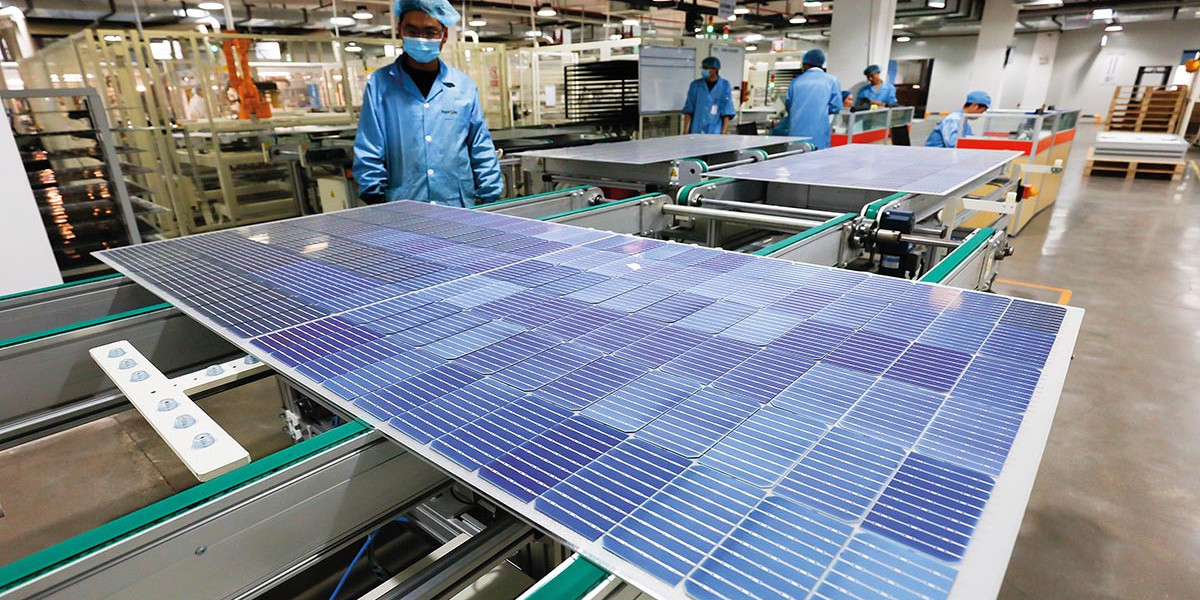The United States Solar Panel Recycling Market is gaining traction as the adoption of solar energy continues to increase. With millions of solar panels reaching the end of their life cycle, the need for efficient and sustainable recycling solutions is becoming more urgent. The solar panel recycling industry plays a critical role in addressing concerns related to electronic waste (e-waste) and the environmental impact of decommissioned solar panels. The United States Solar Panel Recycling Market is poised for significant growth, driven by government regulations, technological advancements, and rising consumer awareness about sustainability. In this article, we will explore the key drivers, trends, challenges, and opportunities within the solar panel recycling sector in the U.S.
Overview of the United States Solar Panel Recycling Market
Solar panel recycling involves the process of reclaiming valuable materials from used or decommissioned solar panels, such as silicon, silver, and glass. As solar power becomes an increasingly popular energy source in the United States, the volume of solar panels reaching the end of their operational life is expected to grow. By 2050, it is estimated that millions of solar panels will need to be recycled. This creates a significant opportunity for the solar panel recycling market to evolve, with the potential for innovation in recycling technologies and business models.
Market Drivers
Several key factors are driving the growth of the solar panel recycling market in the United States:
Growing Solar Energy Adoption: As the demand for renewable energy continues to rise, the number of solar installations is also increasing. As solar panels have a lifespan of 20-30 years, a large portion of these systems will need to be decommissioned and recycled over the coming decades.
Government Regulations and Policies: The U.S. government is introducing and updating policies to encourage sustainable practices across various industries, including renewable energy. Federal and state regulations aimed at reducing e-waste and promoting recycling are key drivers in the expansion of the solar panel recycling industry.
Environmental Concerns: As awareness of the environmental impact of waste materials grows, there is increasing pressure on industries to adopt circular economy principles. Solar panel recycling helps mitigate the risk of toxic chemicals leaking into the environment and supports sustainable development by reclaiming valuable materials for reuse.
Technological Innovations: Advances in recycling technologies are making the process of extracting materials from solar panels more efficient and cost-effective. New methods are improving the recovery rates of valuable components such as silicon, silver, and other metals, making the recycling process more economically viable.
Types of Solar Panel Recycling Technologies
Solar panel recycling involves a combination of mechanical and chemical processes to extract valuable materials. Several technologies are currently being developed and implemented in the United States to improve the efficiency of solar panel recycling. These technologies can be broadly categorized into the following types:
1. Mechanical Recycling
Mechanical recycling is the most common form of solar panel recycling. It involves physically dismantling the panels to separate the components. This process includes the following steps:
Separation of Glass: Solar panels are composed primarily of glass, which can be separated and reused in new panels or other glass products.
Crushing: Once the panels are broken down, they are crushed into smaller pieces to make it easier to separate materials like silicon, aluminum, and copper.
Separation of Metals: Metals like aluminum and copper are separated using magnetic or eddy current separation techniques for reuse.
While mechanical recycling is a proven and widely used method, it is less effective at recovering the valuable silicon and silver found in solar panels.
2. Chemical Recycling
Chemical recycling methods involve using chemical processes to break down solar panel components and extract valuable materials at higher purity levels. Some common chemical recycling techniques include:
Acid Leaching: This process involves using acid to dissolve metals from solar cells, allowing for the recovery of precious materials like silver and copper.
Pyrometallurgical Processes: This high-temperature process involves using heat to separate different materials from the panel, making it more effective for recovering metals like silver, gold, and copper.
Chemical recycling technologies are more complex and expensive but can offer higher recovery rates for valuable materials compared to mechanical methods.
3. Biological Recycling (Emerging Technology)
Biological recycling, also known as biorecycling, is an emerging field that focuses on using microorganisms or enzymes to break down materials in solar panels. While this technology is still in the research and development phase, it offers a potentially low-energy and environmentally friendly solution for solar panel recycling in the future.
Market Trends and Innovations
The United States Solar Panel Recycling Market is continuously evolving, with several emerging trends and innovations shaping its future. These trends are driven by advancements in technology, regulatory pressures, and the increasing demand for sustainable practices in the energy sector.
1. Circular Economy Models
The concept of a circular economy is gaining traction in the solar panel industry. A circular economy focuses on reducing waste by reusing and recycling materials rather than relying on raw materials. In the case of solar panels, this means designing panels with recycling in mind from the outset, making it easier to dismantle and reuse components at the end of their lifecycle.
Manufacturers are also working on developing solar panels that can be more easily recycled. For example, some companies are focusing on designing panels that use less toxic material and are easier to disassemble at the end of their operational life.
2. Partnerships and Collaborations
To address the challenges of solar panel recycling, many companies are forming partnerships with recycling firms, technology providers, and governments. These collaborations help develop scalable recycling solutions, improve recycling efficiency, and create a more structured and organized recycling supply chain.
For instance, companies like First Solar have committed to producing solar panels that are designed for easier recycling. At the same time, they are investing in recycling facilities that will help handle the increasing volume of decommissioned panels in the future.
3. Automation and AI Integration
Automation is playing an increasingly important role in improving the efficiency of solar panel recycling processes. Artificial intelligence (AI) and machine learning are being used to optimize the sorting and recovery of materials from solar panels. By leveraging AI, recycling facilities can increase throughput, reduce labor costs, and improve the accuracy of material recovery, resulting in higher profitability.
Challenges in the Solar Panel Recycling Market
Despite the positive outlook, the solar panel recycling market faces several challenges that may hinder its growth:
1. High Recycling Costs
The cost of recycling solar panels can be significant, especially when it comes to technologies like chemical and biological recycling. The high cost of recycling, coupled with the relatively low price of raw materials like silicon, makes it difficult to establish economically viable recycling facilities.
2. Limited Recycling Infrastructure
The infrastructure for solar panel recycling in the United States is still in its nascent stages. There are relatively few specialized facilities capable of recycling solar panels at scale. Expanding this infrastructure will require significant investments in research, development, and operational capacity.
3. Lack of Standardization
There is currently no uniform standard for solar panel recycling in the U.S. Different states have varying regulations, and there is no single approach to recycling solar panels. Standardizing the recycling process would help create a more efficient, organized market.
Competitive Landscape
The U.S. solar panel recycling market is competitive, with several key players involved in the collection, recycling, and repurposing of solar panels. Some prominent companies in the market include:
First Solar: A leader in sustainable solar panel recycling, First Solar has a dedicated recycling facility and aims to recycle 90% of the materials in its panels.
Veolia North America: A global leader in waste management, Veolia provides specialized services for the recycling of electronic waste, including solar panels.
Sungrow Power Supply Co., Ltd.: Sungrow is investing in solar panel recycling research and developing efficient recycling technologies to address the growing need for panel disposal and material recovery.
Conclusion
The United States Solar Panel Recycling Market is positioned for substantial growth in the coming years, driven by the increasing adoption of solar energy, supportive government policies, and advancements in recycling technologies. While there are challenges, such as high costs and limited infrastructure, the market is expected to benefit from innovations in recycling processes and the growing importance of sustainability in the energy sector. As solar energy continues to expand, effective recycling solutions will play a key role in ensuring that the U.S. transitions to a more sustainable and circular economy.
More Trending Reports
Smart Transformers Market Analysis








